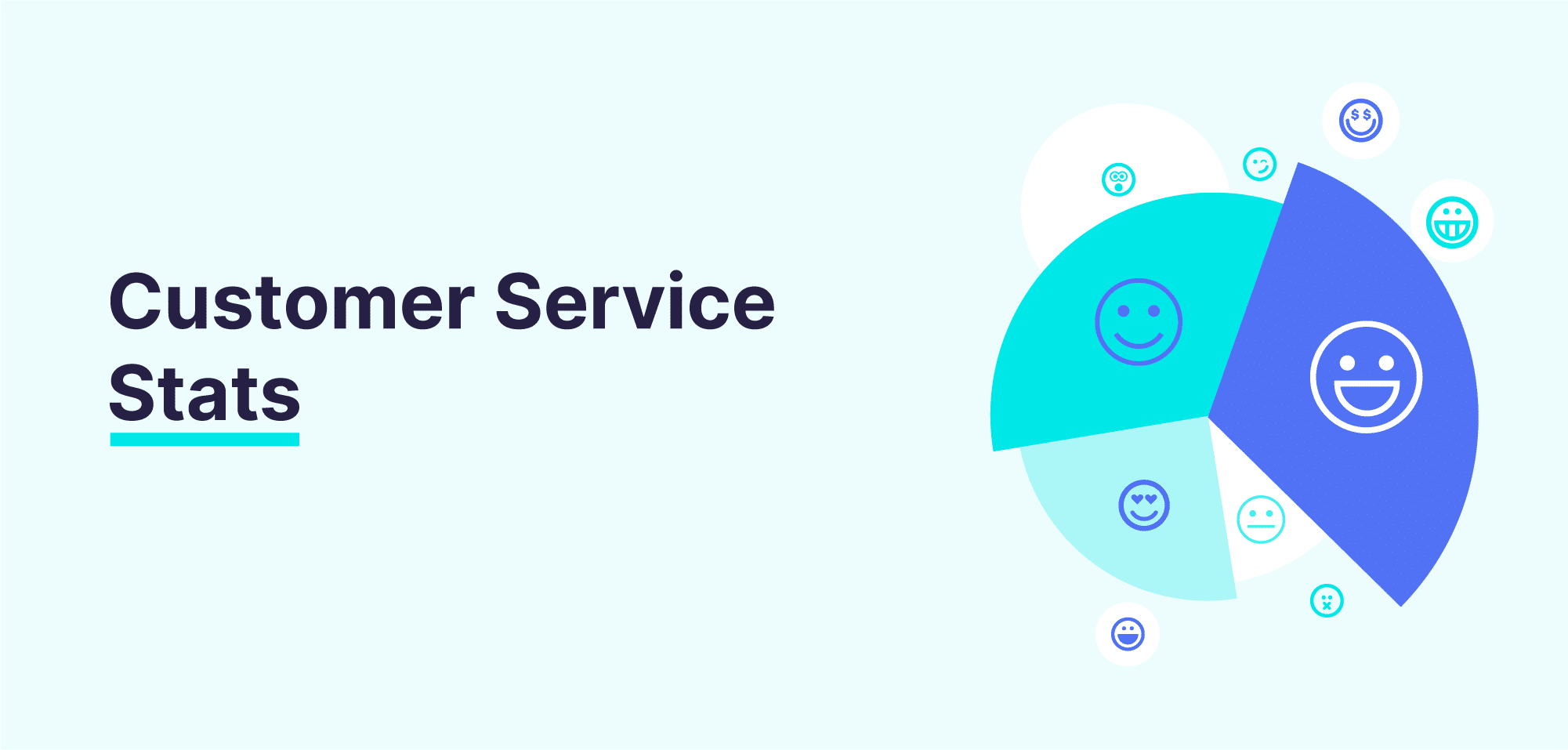Customer support is an integral part of any business, and providing top-notch service can make or break your reputation. In today’s fast-paced digital landscape, customers demand quicker and more efficient solutions to their problems. This is where Generative AI-based IT helpdesk software comes into play, revolutionizing customer support as we know it. In this blog, we’ll explore the importance of transforming customer support and the myriad benefits of implementing Generative AI in this context.
Related blog: 20 Best Helpdesk Ticketing Systems & Tools in 2024
Importance of Transforming Customer Support
Enhancing customer experiences
The success of your business is closely tied to the satisfaction of your customers. Traditional customer support can be time-consuming and frustrating. By transforming to Generative AI-based customer support, you can provide faster, more accurate, and more personalized solutions, improving customer satisfaction. This triggers higher customer loyalty and positive organic marketing.
Cost optimization
Traditional customer support often involves a substantial labor force, which can be costly. Implementing Generative AI can help reduce operational costs by handling routine inquiries, leaving agents to deal with issues that actually require manual intervention. This cost-effective approach makes sure that resources are allocated where they matter most.
Scalability & availability
AI-driven helpdesks are available 24/7, ensuring that customers can get assistance anytime. Whether it’s a simple query in the middle of the night or a holiday rush, AI is always ready to provide support, eliminating the need for customers to wait. This round-the-clock availability boosts your support operations to accommodate customer demands, even during peak times.
Data-rich insights
By transforming customer support with AI, you gain access to valuable data and insights. AI can analyze customer interactions, identify trends, and suggest improving your products or services. This data-driven approach empowers your business to make informed decisions, adapt to changing customer needs, and continuously enhance the quality of your offerings.
Understanding the Impact of Generative AI on Customer Support
What is Generative AI?
Generative AI, short for Generative Artificial Intelligence, is an AI subset that focuses on creating data or content. It can generate text, images, and even code. Unlike traditional AI systems that rely on pre-programmed rules or patterns, Generative AI uses neural networks and machine learning techniques to generate content autonomously.
At the heart of Generative AI are deep learning models that analyze vast datasets to understand patterns and relationships. This allows them to generate content that is contextually relevant and coherent.

“Generative AI to Become a $1.3 Trillion Market by 2032”
Generative AI works by training on large datasets to learn data structures and patterns. The process generally involves the following steps:
Data collection
A diverse dataset is gathered, containing examples of the content the AI will generate. In the case of customer support, this could include previous customer interactions, frequently asked questions and product information. This data reservoir serves as the foundation, ensuring the AI has a rich knowledge base to draw from.
Training the model
The AI model is fed this dataset, and it learns to understand the context, syntax, and semantics of the data. It is often done through recurrent neural networks (RNNs) or transformer-based architectures. During training, the AI fine-tunes its understanding of language nuances, context, and the intricacies of customer queries to improve its responsiveness.
Generating content
Once trained, the AI can generate content responding to specific queries or prompts. It considers the context provided and generates coherent and contextually relevant responses. By assimilating the input context, the AI crafts responses that are relevant and tailor-made to address the customer’s specific needs.
Fine-tuning
Gen AI can be further fine-tuned on support-related data, allowing it to understand industry-specific terminology and nuances. Fine-tuning customizes the AI to the intricacies of your support operations, ensuring it comprehends the unique language and requirements of your business and customers.
Gen AI applications in customer support
- Automated responses: AI-powered chatbots and virtual assistants can respond instantly to customer queries, offering solutions to common issues and reducing response times. This enhances customer satisfaction with quick 24X7 assistance.
- Enhanced self-service: Generative AI can power self-service portals so that customers can get answers, troubleshoot problems, and track orders, all without human intervention. It empowers customers to resolve issues independently, saving both time and resources for your support team.
- Quality assurance: AI can assist human agents by suggesting responses and ensuring consistency in support interactions. It can also flag potential issues for review, thereby upholding a high standard of service while reducing the chances of response errors.
- Language support: Generative AI can be multilingual, enabling businesses to provide support in various languages and reach a global audience. So, language barriers won’t hinder your ability to serve customers in diverse markets, opening up new growth opportunities.
- Data insights: AI can analyze customer interactions to identify trends, common problems, and areas for improvement in products or services, helping businesses make data-driven decisions. Hence, businesses can continuously refine their support strategies and offerings for better customer experiences.
“69% of customer support leaders plan to invest more in AI in the year ahead—and 38% have already done so.”
Benefits of Generative AI-based IT Helpdesk Software
Quick & accurate responses
Generative AI can easily go through vast amounts of data and respond rapidly to customer queries. The accuracy of responses improves as the AI model learns from past interactions, ensuring that customers receive consistent, high-quality assistance. This accelerates issue resolution while building trust in the reliability of your customer support.
Better handling of routine inquiries
AI can handle routine customer inquiries, such as order status checks, password resets, or frequently asked questions, freeing up human agents to address more complex issues. This streamlines the support process and reduces response times, ultimately leading to cost savings and improved operational efficiency.
Personalization support
Generative AI can provide personalized responses by analyzing customer data and purchase history. This ends up elevating the support experience and making customers feel more valued and better understood. The result is efficient support and a deeper emotional connection with your brand.
24/7 service availability
AI-powered helpdesks are always available, providing support around the clock. This is crucial for businesses with a global customer base and for handling after-hours inquiries. The ability to offer support at any time helps customers to stop waiting for assistance.
Support scalability
As your business grows, AI can easily scale to meet increasing support demands. There’s no need to hire and train more support agents; the AI can handle the extra load seamlessly. This scalability feature allows your customer support to remain adaptable to your business’s changing needs without the logistical challenges of expanding your human support team.
Getting Started with Gen AI Implementation in Customer Support
To successfully embark on this transformative journey, you need a clear roadmap. Let’s look at a step-by-step process.
Assessing Your Current Helpdesk
Before Gen AI implementation, you must assess your existing customer support infrastructure:
Evaluate existing processes
Evaluate your current customer support processes, including response times, agent workload, and the inquiries you handle. Identify key processes that can benefit from automation. This analysis will help you pinpoint where Gen AI can make the most significant impact, streamlining processes and improving efficiency.
Customer feedback
Review customer feedback and support tickets. Are there recurring issues that Gen AI could address? Are there any specific areas where customers often express dissatisfaction? By mining customer feedback, you can identify areas for the Gen AI application and demonstrate your commitment to addressing customer concerns, which can boost customer trust and satisfaction.
Agent skill sets
Consider the skills and expertise of your support team. What tasks could be offloaded to Gen AI so that agents can keep focusing on complex and high-value interactions? This assessment will enable you to leverage Gen AI strategically, optimizing the collaboration between your support agents and AI to deliver a higher level of service.
Technology assessment
Assess your current IT infrastructure and tools so that Gen AI solutions can be integrated seamlessly. If not, plan for necessary upgrades or replacements. A thorough technology assessment is important for successfully integrating Gen AI into your existing systems, minimizing disruptions and ensuring a harmonious technological environment for your support operations.
Setting Clear Objectives
Once you have a thorough understanding of your current support setup, it’s time to set clear objectives for your Gen AI implementation:
- Define your goals: Outline your primary objectives. Are you aiming to reduce response times, enhance customer satisfaction, or improve the efficiency of your support team? Define measurable key performance indicators (KPIs).
- Customer experience enhancement: Specify how Gen AI will enhance customer experience. Will it provide quicker responses, personalized assistance, or extended support hours?
- Business scalability: Consider how Gen AI will help your business scale. Will it allow you to support a growing customer base without a linear increase in support agents?
- Quality assurance: Set standards for response accuracy and consistency. Define how Gen AI will assist human agents and maintain a high quality in support interactions.
“By 2025, AI will power 95% of customer interactions.”
Budget and resource considerations
- Cost assessment: Understand the costs of Gen AI implementation, including software, hardware, training, and ongoing maintenance. Factor in both initial and recurring expenses. A comprehensive cost assessment allows for financial planning that aligns with your budget so that the implementation remains financially viable.
- ROI analysis: Evaluate the expected ROI of Gen AI. Consider how much time and money you can save, and how it can contribute to revenue growth and customer loyalty. Conducting an ROI analysis justifies the investment while helping set realistic expectations regarding the economic benefits of Gen AI.
- Resource allocation: Determine the human resources required for implementation and ongoing management. Assign responsibilities for overseeing the Gen AI system and monitoring its performance. Smart resource allocation equips your teams with the right skills and responsibilities to manage Gen AI.
- Training and support: Allocate resources for training your support agents on how to work with Gen AI and provide necessary technical support. Ensure that they understand how to leverage AI for enhanced customer service.
How to Select the Right Gen-AI Solution for Customer Support
With the multitude of Gen AI solutions available, selecting the right one for your helpdesk can be a daunting task. Let’s walk through the crucial steps to help you choose the perfect Gen AI solution for your customer support needs.
What to consider while choosing the right platform?
- Scalability: Ensure the platform can scale to accommodate your business growth and increase support demands without compromising performance or incurring excessive costs. A scalable solution adapts to your evolving customer support needs and guarantees your investment remains cost-effective as your business expands.
- Integration: Select a platform that can be effortlessly integrated into your current helpdesk and CRM systems to create a unified support ecosystem. Integration streamlines data sharing, reduces manual data entry, and enhances the synergy between your support tools.
- Customization: Get a solution that lets you customize the Gen AI model to align with your brand voice, industry terminology, and specific customer support needs. Customization makes sure the AI solution reflects your business’s unique identity and can address industry-specific nuances.
- Data security: Prioritize a platform with robust data security measures to safeguard customer information and comply with data protection regulations. Data breaches can be expensive while damaging your brand’s reputation, making data security non-negotiable.
How to evaluate the right vendors
Choosing the right Gen AI solution is closely tied to selecting the right vendor. Here’s how to evaluate potential vendors:
- Reputation and Experience: Research the vendor’s reputation and experience in providing Gen AI solutions. Look for customer reviews, case studies, and the vendor’s track record in your industry. A vendor with a solid reputation and relevant experience is more likely to deliver a reliable Gen AI solution that aligns with your customer support goals and industry-specific needs.
- Compliance and Regulation: Ensure the vendor complies with industry-specific regulations and data privacy laws, if applicable to your business. Regulatory compliance is non-negotiable to protect both your business and your customers, and a reputable vendor should demonstrate a commitment to these standards.
- Demo and Trial: Request a demo to assess the platform’s usability, performance, and suitability for your customer support needs. Hands-on experience with the Gen AI platform helps you assess its practicality, functionality, and alignment with your support operations before committing to a long-term partnership.
- Customer Support: Inquire about the level of customer support the vendor offers, including responsiveness, available channels, and the quality of support services. Reliable customer support from the vendor offers readily available assistance when you need it, minimizing potential disruptions to your customer support operations.
- Pricing and ROI: Assess the pricing structure and consider the ROI for the Gen AI solution. Evaluate the cost-effectiveness and long-term financial benefits. A thorough analysis of pricing and ROI allows you to make an informed financial decision, ensuring that your investment in Gen AI yields substantial returns and aligns with your budget constraints.
“AI chatbots let businesses save up to 2.5B hours of work for customer support reps a year.”
Preparing Your Gen AI Data to Ace Support Experiences
By collecting, organizing, and cleaning your data, you provide a strong foundation for training and fine-tuning Gen AI models.
Data collection and organization
- Data sources: Begin by identifying the data sources that Gen AI will use. It can include customer interactions, chat logs, emails, support tickets, product information, etc. Collect data from various channels to create a comprehensive dataset.
- Data organization: Organize the data into structured and accessible formats. Create well-labeled datasets, ensuring that data from different sources can be easily integrated and used to train Gen AI models.
- Data volume: Be sure you have a large dataset to train Gen AI. The more data you have, the more accurate and versatile your Gen AI support system can become.
- Data diversity: Make sure your dataset is diverse, representing various customer interactions, queries, and scenarios. Diversity in data helps Gen AI understand and respond to a broad spectrum of customer needs.
Data cleaning and preprocessing
- Data cleaning: Cleanse the data by removing inconsistencies, errors, or outliers. This includes addressing issues like missing values, duplicates, and inaccuracies. Clean data is vital for training Gen AI to provide accurate and reliable responses.
- Text normalization: Standardize text data by applying techniques like stemming, lemmatization, and removing special characters. So, Gen AI can understand and process text data.
- Data labeling: Annotate and label the data, indicating the intent, sentiment, or context of customer interactions. This labeling process helps Gen AI recognize patterns and understand the underlying meaning of customer queries.
- Data splitting: Divide your data into training, validation, and testing sets. Training data is used to teach the Gen AI model, while validation and testing data evaluate its performance and help fine-tune the model.
Data security and privacy considerations
- Anonymization: Make sure that personally identifiable information (PII) is anonymized or removed from the data to protect customer privacy.
- Access control: Implement strict access controls to limit who can access and work with sensitive customer data. Only authorized personnel should be able to access this information.
- Encryption: Use encryption protocols to protect data in transit and at rest. Encryption safeguards customer data from unauthorized access.
- Data retention policies: Establish data retention policies that define how long customer data is stored. After a certain period, data should be securely deleted to reduce the risk of data breaches.
“80% of customers who interact with an AI chatbot have a positive experience.”
Integration and Deployment of Gen AI in Helpdesks
The integration and deployment of Gen AI in your helpdesk can greatly enhance the customer support experience. Let’s find out how to ensure smooth Gen AI integration and deployment in your helpdesk.
Integration with existing systems
System compatibility: Gen AI must seamlessly integrate with your helpdesk software, CRM, and other relevant tools. So, integration is key to streamlining the support process. Compatibility checks help prevent technical roadblocks, ensuring a smooth implementation and efficient collaboration between the AI and your existing infrastructure.
APIs and middleware: It allows real-time data synchronization and enables the AI to access the necessary information to provide contextually relevant responses. APIs and middleware act as the bridge that connects your data ecosystem, enabling seamless communication and data exchange, which is vital for a dynamic and responsive support system.
Data accessibility: Grant appropriate permissions and establish secure connections to databases, customer records, and historical support interactions. Data accessibility ensures that AI has a rich knowledge base to draw from. With proper data accessibility, the AI can provide more accurate and informative responses, resulting in a higher level of customer satisfaction and issue resolution.
Training the AI model
- Data preparation: Prepare a diverse and comprehensive dataset for training the Gen AI model, including past customer interactions, chat logs, support tickets, and relevant product or service information. Clean and label the data to make it suitable for training.
- Training environment: Set up a dedicated environment for training the AI model. This environment should have the necessary hardware, software, and processing power to facilitate efficient model training. Cloud-based solutions can be particularly useful for scalability.
- Fine-tuning: Train the model using machine learning algorithms, recurrent neural networks (RNNs), or transformer-based architectures. Fine-tune the AI to understand the nuances of customer queries and responses. Adjust the model to align with your brand’s voice, industry terminology, and specific support needs.
Testing and validation
- Validation datasets: Create separate datasets for model validation and testing. Validation datasets help assess the model’s performance, meeting your quality standards.
- Performance metrics: Establish performance metrics and key performance indicators (KPIs) to evaluate the AI’s responses. Metrics include accuracy, response time, and customer satisfaction. Regularly monitor and adjust these metrics as needed to maintain high-quality support.
- User testing: Conduct user testing by simulating real customer interactions with the AI. Gather feedback from your support team and customers to identify areas for improvement. This iterative process helps refine the AI’s performance.
8 Challenges of Gen AI in Customer Support
While Gen AI promises numerous benefits, it’s not without its challenges. In this blog, we’ll explore eight common challenges you may face when implementing Gen AI in customer support operations.
1) Data quality & quantity
One of the fundamental challenges of Gen AI is ensuring the availability of high-quality data in sufficient quantities. Training AI models demand a lot of data, and so – maintaining data quality is essential for accurate responses.
2) Understanding nuances
Gen AI sometimes struggles to grasp the nuances of language, cultural variations, and colloquialisms. It may misinterpret customer queries or provide responses that lack the appropriate tone or cultural sensitivity.
3) Privacy and security
Customer support interactions often involve sensitive information. Maintaining data privacy and security while using AI to handle these interactions is a significant challenge. Businesses must comply with data protection regulations.
4) Integration complexity
Integrating Gen AI into existing customer support systems can be complex. Ensuring seamless compatibility and data flow between Gen AI and legacy software is a challenge that requires careful planning.
5) Quality control
Maintaining the quality and consistency of responses generated by Gen AI is an ongoing challenge. AI models occasionally provide incorrect or inappropriate answers, necessitating human oversight and continuous fine-tuning.
6) Handling complex inquiries
While Gen AI is adept at addressing routine inquiries, it may struggle with complex, context-dependent issues. Ensuring that it can seamlessly escalate complex queries to human agents is a challenge that demands a well-defined workflow.
7) Customer trust and acceptance
Customers may be initially skeptical about interacting with AI-driven support. Building trust and acceptance is a challenge, and businesses must communicate the benefits of Gen AI.
8) Employee training and transition
Equipping support teams to work with Gen AI is crucial. Providing training and guidance to support agents, and helping them transition to a collaborative model that includes AI, is a challenge that demands organizational change management.
4 Trends of Gen AI in Customer Support
Hyper-personalization
As Gen AI continues to evolve, it will become increasingly adept at delivering hyper-personalized support. By analyzing vast datasets and customer histories, Gen AI will provide responses that cater to individual preferences, needs, and behaviors. This level of personalization will result in higher customer satisfaction and loyalty.
Multimodal interaction
The future of Gen AI in customer support will see a shift towards more versatile communication. AI will not be limited to text-based interactions but will also handle voice and visual content. This means that customers can engage with support using the communication mode that suits them best, and Gen AI will seamlessly adapt to each.
Emotional intelligence
Future Gen AI systems will be equipped with advanced emotional intelligence capabilities. They will detect and respond to customer emotions, whether expressed through text, voice, or sentiment analysis. Understanding and addressing customer emotions will be vital for delivering empathetic support.
AI-driven escalation and collaboration
As Gen AI becomes more proficient in handling routine inquiries, it will play a more significant role in routing and escalating complex issues to human agents. Gen AI will seamlessly collaborate with support teams, providing background information and suggested solutions, resulting in faster and more accurate issue resolution.
Related blog: The Evolution of Helpdesk in 2023 and Predictions for 2024
Infraon Helpdesk – a Gen AI-powered customer resolution platform
Infraon Helpdesk, with its seamless Gen AI integration, is poised to redefine the future of customer support. Its range of features, prebuilt AI-driven workflows, and focus on improving KPIs make it a powerful tool for businesses looking to stay ahead. With Gen AI integration at its core, it enables businesses to deliver future-ready and customer-centric support journeys.
Key features that set Infraon helpdesk apart
- AI-led chatbots: Gen AI comes into play through AI-driven chatbots that can assist customers 24/7. Training the bot is one of the simplest and best in the market—just upload existing knowledge in a document format. These chatbots are equipped with NLP power to analyze and respond to customer queries intelligently.
- Email to ticket: Infraon Helpdesk simplifies ticket creation by allowing customers to submit support requests via email. With Gen-AI, the system reads and understands the issue, automatically categorizing and allocating it to the respective support agent. This feature ensures that every customer inquiry is logged and tracked for a seamless support experience.
- Ticket creation via omnichannel: Infraon Helpdesk brings convenience to a new level by allowing customers to create support tickets through WhatsApp/teams/slack. This user-friendly approach meets customers where they are and offers a channel they’re already comfortable with.
- Integrated field support: Infraon Helpdesk streamlines field support operations, enabling businesses to manage on-site service requests using the mobile app. This feature addresses customer issues promptly, even when physical intervention is required.
- Self-service portals: Empowering customers to find solutions independently is a core feature of Infraon Helpdesk. Self-service portals provide customers with answers to common queries, enhancing the support experience while reducing the workload on human agents.
Advantages of Infraon Helpdesk
- Prebuilt AI-driven workflows: Infraon Helpdesk has prebuilt AI-driven workflows that utilize ML and NLP algorithms to accelerate issue resolution. It means faster solutions and reduced support response times.
- Improved KPIs: The integration of Gen AI with Infraon Helpdesk has a significant impact on key performance indicators (KPIs) such as Customer Satisfaction (CSAT), First Contact Resolution (FCR), and Customer Effort Score (CES). Sharing problem-solving responsibilities with AI-driven support improves these metrics, leading to greater customer satisfaction.
- Single source of customer analytics: Infraon Helpdesk with Gen AI centralizes customer data and analytics. It enables support agents to provide personalized responses based on historical interactions, resulting in better, tailored support experiences.
- External support not required: Unlike many Gen AI implementations that demand continuous external support, the Infraon Helpdesk is designed to be self-sufficient. It’s an intuitive, easy-to-manage platform that doesn’t require extensive external assistance, allowing businesses to maximize Gen AI without added complexities.



















